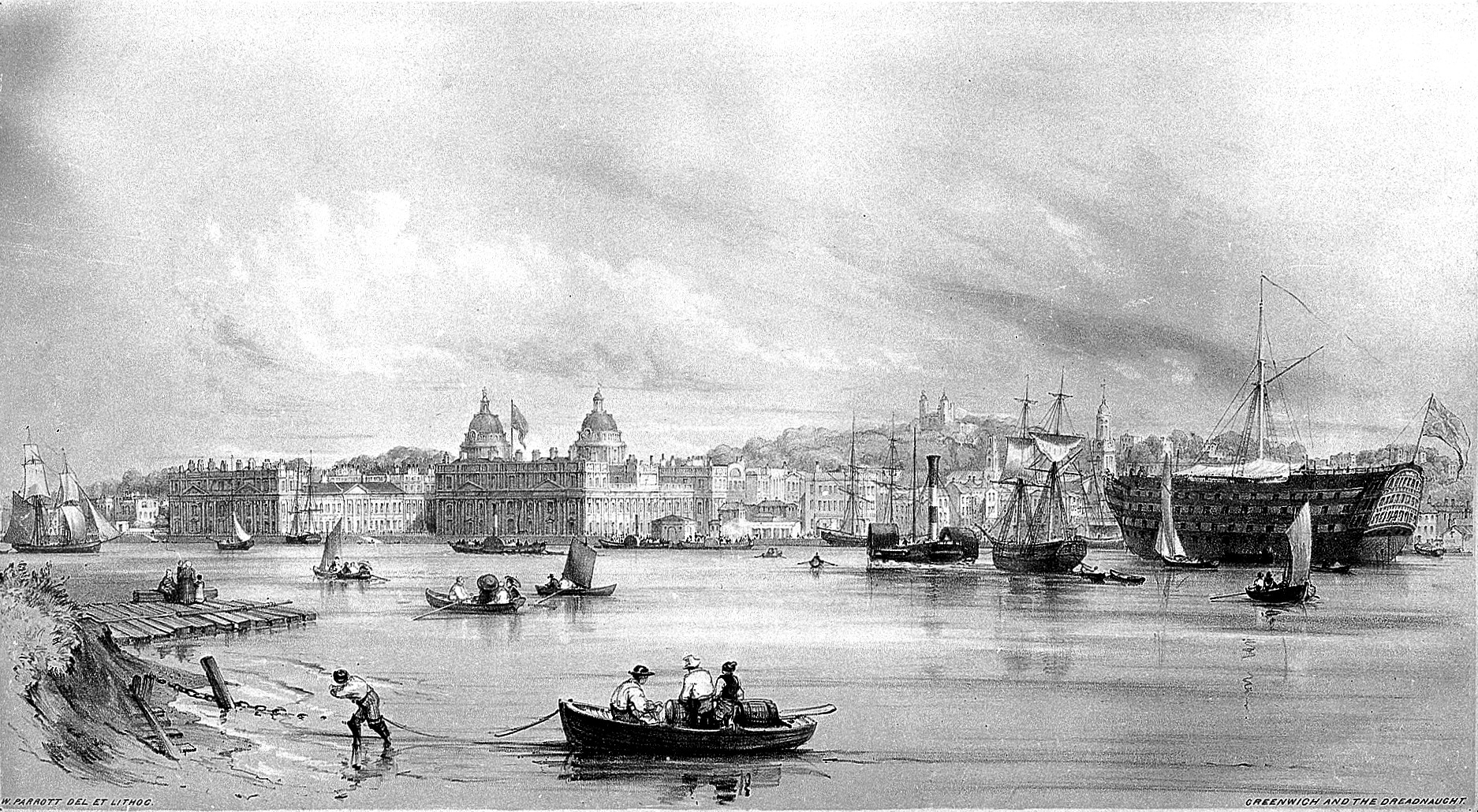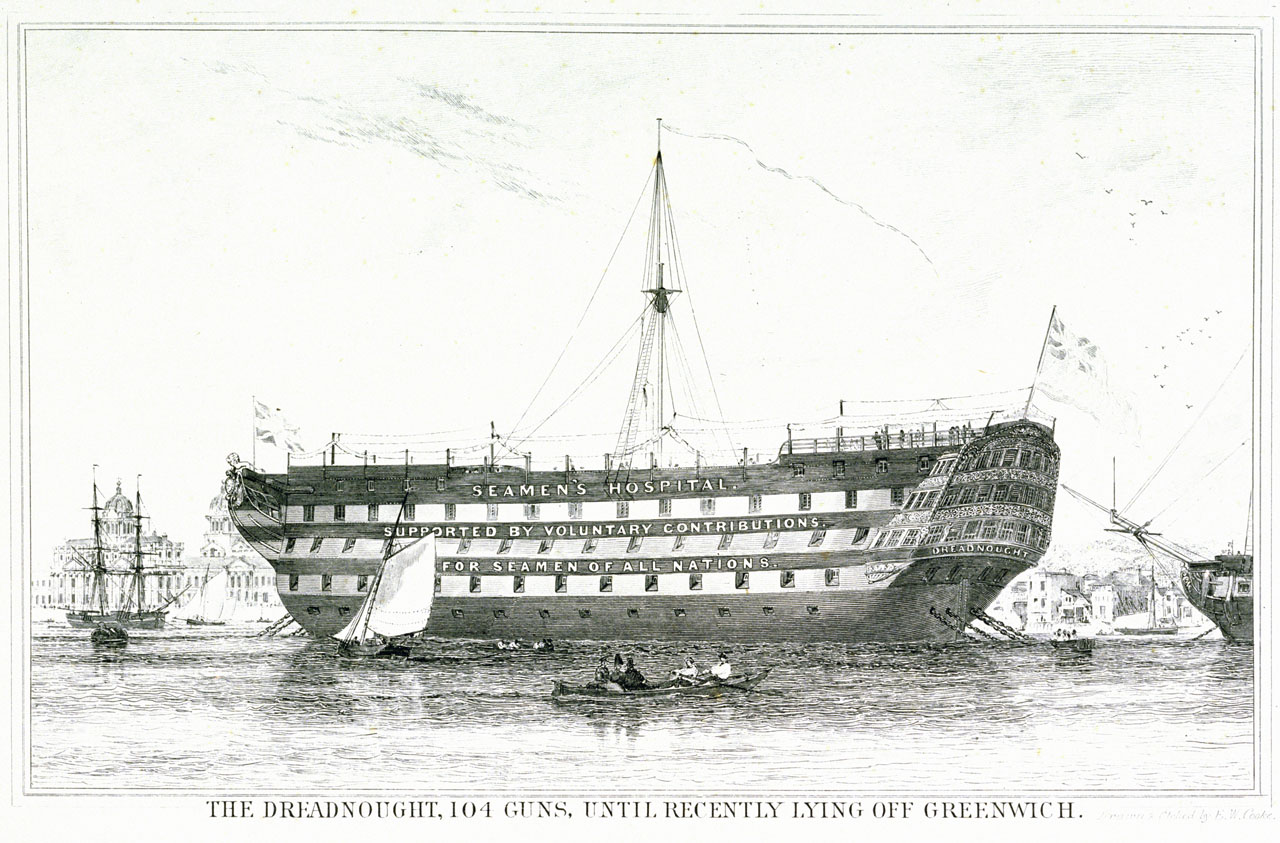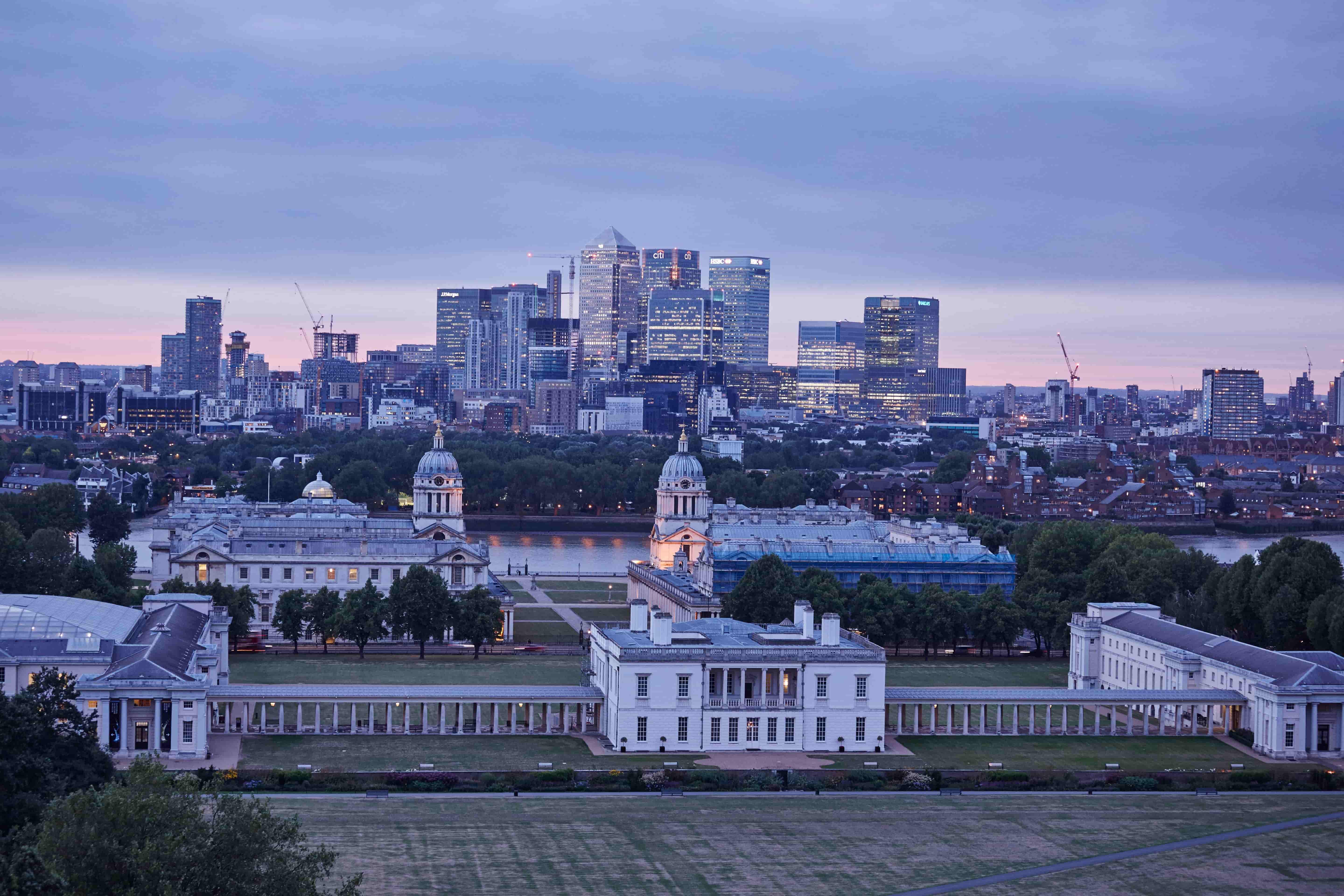Finished! Looks like this project is out of data at the moment!
18th September 2023: HMS NHS has now been completed! HUGE thanks to everyone who contributed. The data will now be cleaned and formatted, before manual sample checking. We hope to have the data uploaded into the RMG Archive catalogue next year. Keep checking back here for further announcements, and once again, our heartfelt thanks for all your hard work, from the HMS NHS Project team: Trevor, Lucy, Graham and Martin.
Data from the first phase of HMS NHS is now available for Project teams' review and reuse. For details, see the Results page.
Research
Welcome to HMS NHS: The Nautical Health Service!

The Dreadnought Seamen’s Hospital at Greenwich was the main clinical site of the Seamen’s Hospital Society (now Seafarers' Hospital Society), founded with the philanthropic mission of providing relief to sick and injured seafarers of all nations. Throughout the period 1821-1870 it was a floating hospital, based on three successive, converted warships (named Grampus and later HMS Dreadnought). It then moved on land and until 1986, occupied the buildings which are now a student hub for the University of Greenwich.
The records we are transcribing cover the period 1826 to 1930 and the details of admissions include name, age and place of birth, 'quality' (or rank) and last vessel served on. Medical information includes dates of admission and discharge, medical condition, illness or injury and reason for discharge. The patients were seafarers from all over the globe, reflecting the international traffic of the Port of London. Also reflecting its international clientele, the hospital went on to specialise in the treatment of tropical diseases. Casualties from local emergencies, among them women and children, were also admitted, as were wounded servicemen and women during wartime. The volume from 1918 is one such example, documenting the wounds received in fighting in the trenches of the Western Front by the seamen of the Royal Naval Division.

Traditionally used by family historians to trace individual maritime ancestors, the records also have significant research potential, including the history of medicine and diseases, the evolution of treatment of specific illnesses, and the types of injuries most common within the maritime workforce. The records also show which illnesses were most prevalent in seamen returning from specific parts of the world, together with an almost unlimited number of case studies for examining how treatments and recovery times changed in response to advances in medical knowledge. The records also offer additional perspectives on diverse subjects, such as the experience of black and Asian seafarers within the maritime world. Taken as a whole, they show the variety and prevalence of disease, injuries and common ailments in the Merchant Navy for over a hundred years.
The records have previously been digitised by genealogy company Ancestry, though only four fields are searchable. This project seeks to transcribe all the relevant data from the records, and make their full research value freely available online for the first time through the [RMG Archive catalogue]
Licencing
The records of the Dreadnought Seamans Hospital are Public Records (Crown copyright), held by the National Maritime Museum as an official place of deposit under the terms of the Public Records Acts.
The data are transcriptions of Public records, which are also covered by Crown Copyright. The data is made available under the terms of the Open Government Licence (OGL), the equivalent of Creative Commons Attribution licence 4.0. Users can copy, publish, distribute, transmit and adapt the data for both commerical and non commercial use. Any use should credit the National Maritime Museum as the source.
The images are used online by the National Maritime Museum with permission from Ancestry. The images are made available under the terms of the CC-BY-NC-ND licence. Users can view but not download the images. Users can re-use the images for non-commercial research, education or private study only. Any use should credit the National Maritime Museum (used by permission) as the source.

HMS NHS is part of a larger historical puzzle. By volunteering, you’ll also be supporting an overarching project that studies how volunteers interact with citizen research projects -- Engaging Crowds: citizen research and heritage data at scale, is part of Towards a National Collection, an £18.9 million Arts and Humanities Research Council-funded programme which launched in 2020. As one of the programme’s foundational projects, this open-source research will benefit society more widely in showing how volunteers interact with projects and how citizens can change the future of research.
Engaging Crowds looks at online volunteering in the Heritage sector, and considers what motivates volunteers. Similar projects are under weigh with our research partners, The National Archives, and Royal Botanical Gardens (Edinburgh). The research is facilitated by a new Indexing Tool, developed by Zooniverse. The Indexing Tool is crucial to the project, allowing volunteers to choose their own pathway through the transcription project. Further information about Engaging Crowds can be accessed here.
PRIVACY NOTICE: PLEASE READ
The transcription data you enter should not include any personal information of living persons. The transcription data will be aggregated into another format for uploading to the RMG Collections Management system, where it will be displayed and searchable via the RMG online Archive catalogue. The transcriber’s Zooniverse username and user ID number will be shared with The National Archives who are performing the aggregation process on behalf of RMG but no identifiable data will be shared. If you have any questions about how your personal data is being used in this project please contact the Governance and Records Manager at RMG in the first instance.